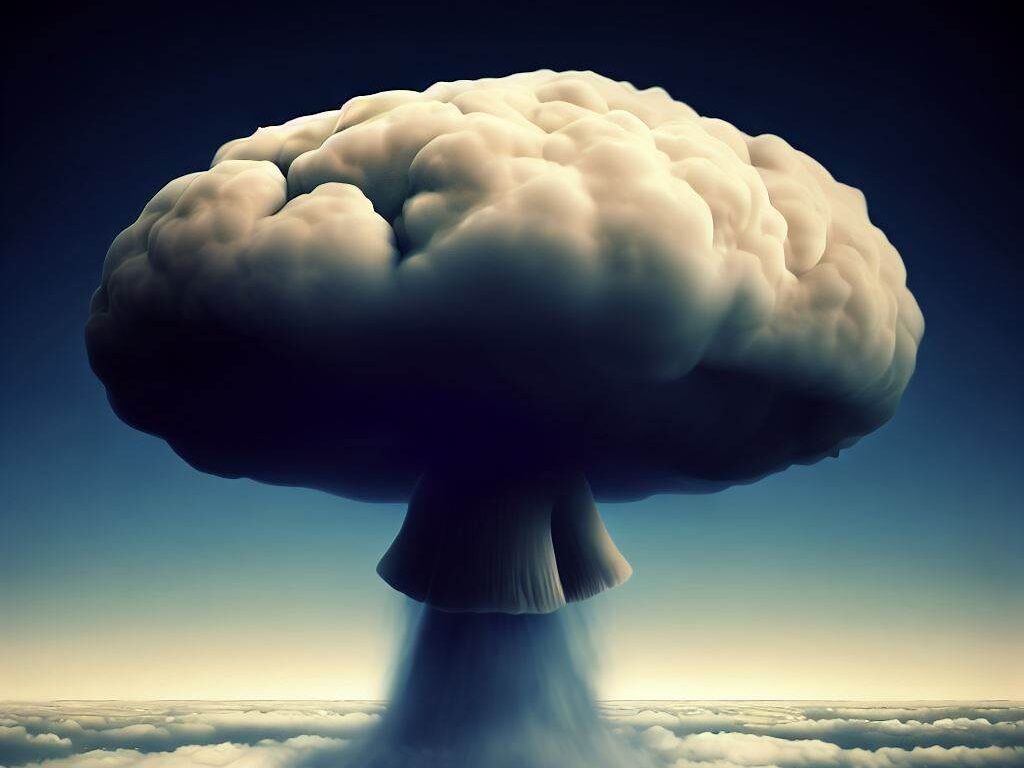Introduction
J. Robert Oppenheimer, often referred to as the “father of the atomic bomb,” was a complex figure in the annals of history. His work on the Manhattan Project during World War II led to the creation of the world’s first nuclear weapons, forever changing the course of human history. But was Oppenheimer proud of his creation? This question has sparked countless debates and discussions over the years.
Early Life and Career
Julius Robert Oppenheimer was born on April 22, 1904, in New York City to a wealthy, secular Jewish family. His father, Julius Oppenheimer, was a textile importer who had immigrated to the United States from Germany, and his mother, Ella Friedman, was an artist.
From an early age, Oppenheimer showed a keen interest in science. He collected minerals, a hobby that sparked his interest in chemistry and physics. His academic prowess was evident from his early years, and he was admitted to Harvard University after just three years of high school. At Harvard, he majored in chemistry but quickly shifted his focus to physics, graduating summa cum laude in 1925.
Oppenheimer then went on to study at the University of Cambridge under J.J. Thomson and later at the University of Göttingen under Max Born, where he completed his Ph.D. in theoretical physics. His early work focused on quantum mechanics, and he made significant contributions to the field, including the Born-Oppenheimer approximation, which is still used in quantum chemistry.
The Birth of the Atomic Bomb
The first successful test of the atomic bomb, codenamed “Trinity,” took place on July 16, 1945, in the desert of New Mexico. The test was the culmination of years of intense and secretive work by some of the world’s top scientists under Oppenheimer’s leadership.
The explosion created a mushroom cloud that rose 40,000 feet into the air and generated a blast equivalent to about 20,000 tons of TNT. The shockwave was felt over 100 miles away. Upon witnessing the explosion, Oppenheimer quoted a line from the Hindu scripture Bhagavad Gita: “Now I am become Death, the destroyer of worlds.” This quote reflected his mixed feelings of triumph and dread.

The Aftermath of Hiroshima and Nagasaki
The bombings of Hiroshima and Nagasaki in August 1945 marked the first and only times nuclear weapons have been used in warfare. The immediate and long-term effects were devastating.
On August 6, 1945, the “Little Boy” bomb was dropped on Hiroshima. The explosion obliterated the city, instantly killing an estimated 70,000 people. Tens of thousands more would die in the following weeks due to radiation sickness, burns, and other injuries.
Three days later, on August 9, the “Fat Man” bomb was dropped on Nagasaki, resulting in the deaths of an estimated 40,000 people on the first day. As in Hiroshima, the death toll continued to rise as more people succumbed to their injuries and the effects of radiation.
The bombings brought about Japan’s unconditional surrender on August 15, 1945, marking the end of World War II. However, the human cost was immense. By the end of 1945, it’s estimated that the death toll had risen to 140,000 in Hiroshima and 70,000 in Nagasaki. Many of those who survived, known as hibakusha, suffered long-term effects such as cancer and other radiation-related illnesses.
The bombings left a profound mark on the world and sparked international debates about the ethics and humanity of using nuclear weapons. The cities themselves were left in ruins, and it took many years for them to recover. Today, Hiroshima and Nagasaki serve as powerful reminders of the destructive potential of nuclear weapons, with Peace Memorials erected in both cities to commemorate the victims and promote peace and nuclear disarmament.
Oppenheimer’s Regret
In the aftermath of the bombings of Hiroshima and Nagasaki, Oppenheimer was haunted by the devastation caused by the weapon he had helped create. He visited President Harry Truman in October 1945, reportedly telling him, “I feel I have blood on my hands.” Truman was taken aback and later told his secretary of state that he never wanted to see “that son of a bitch in this office ever again.”
Oppenheimer’s regret was not so much about the creation of the bomb itself, but about its use on civilian populations. He had believed that the bomb would be used as a deterrent or, if it had to be used, against a purely military target.
The Struggle for Nuclear Disarmament
In the years following World War II, Oppenheimer became a prominent advocate for the control of nuclear weapons. He served as the chairman of the General Advisory Committee of the Atomic Energy Commission, where he argued against the development of the hydrogen bomb, a weapon far more powerful than the atomic bomb.
Oppenheimer’s stance put him at odds with many political and military leaders, leading to a public hearing in 1954 where his loyalty to the United States was questioned. His security clearance was revoked, effectively ending his role in government and policy-making. Despite this setback, Oppenheimer continued to speak out about the dangers of nuclear proliferation until his death in 1967. His life serves as a poignant reminder of the ethical dilemmas that can arise when scientific advancement and moral responsibility intersect.
Conclusion
So, was Oppenheimer proud of his work on the atomic bomb? The answer is complex. While he was undoubtedly proud of the scientific achievement, the moral and ethical implications of his work weighed heavily on him. His later advocacy for nuclear disarmament suggests a man grappling with the consequences of his actions. Oppenheimer’s legacy serves as a stark reminder of the moral dilemmas faced by scientists and the profound impact their work can have on society.
more information about J. Robert Oppenheimer:
- J. Robert Oppenheimer – Nuclear Museum: This source provides a comprehensive overview of Oppenheimer’s life and career, including his role in the development of the atomic bomb and his contributions to theoretical physics.
- J. Robert Oppenheimer – Wikipedia: This Wikipedia page provides a thorough overview of Oppenheimer’s life, his work on the Manhattan Project, and his contributions to science.
- J. Robert Oppenheimer – Britannica: This source provides a detailed biography of Oppenheimer, including his role in the development of the atomic bomb and his contributions to theoretical physics.


